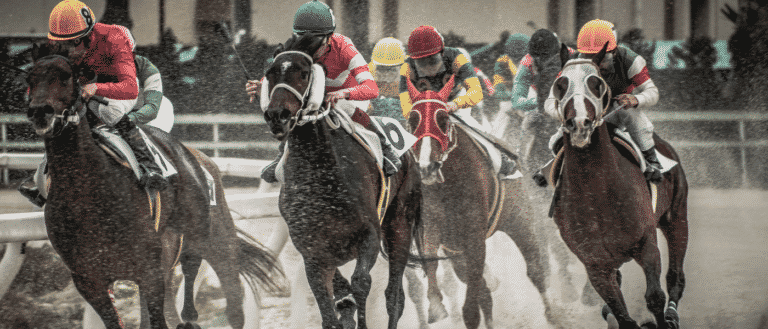Online WSOP Highlights The Absurdity Of US Gambling Laws

When the World Series of Poker kicks off in July, it will be quite different than any of the previous incarnations of the storied WSOP tournament series. Because of the novel Coronavirus, the entire series is taking place online.
Interestingly, moving the series online should increase access, but instead, it highlights the absurd US online gambling laws that severely restrict markets.
As noted in a previous column, there are two separate online WSOP series, one for US players on WSOP.com New Jersey and Nevada, and one for international players on GGPoker.
GGPoker’s international WSOP series is open to players from dozens of countries, but not the US. The WSOP.com version is open to players in two US states, Nevada and New Jersey. That means one of these series will be massive, with total prize money expected to reach nine figures. The other series will award a fraction of that amount.
Problem #1: The Segregated US Market
The internet is supposed to connect the world, but when it comes to US online poker sites, very few states legally allow it, and even in states where online poker is legal, it’s only accessible within the confines of that state.
Effectively, the US, the birthplace of poker, is cut off from national and global online poker markets.
That means US poker players are prohibited from playing on GGPoker, even if they live in one of the four states that currently offer legal online poker or one of the six states that have expressly legalized online poker:
- Michigan Online Poker
- Nevada Online Poker
- New Jersey Online Poker
- Pennsylvania Online Poker
- Delaware Online Poker
- West Virginia Online Poker
A poker player residing in or visiting any of these states is limited to in-state operators.
The US isn’t alone on this front. Plenty of countries have ring-fenced their online gambling industries. However, because legalization is occurring on a state-by-state basis, the US is one of the most restrictive. Look no further than the number of players that will participate in the GGPoker WSOP compared to the WSOP.com version.
Problem #2: Interstate Online Poker Exists, But It’s Limited
Three of the four states offering legal online poker share liquidity across state lines, but even in these instances, player-pooling is limited to like operators in each state.
Pennsylvania is one of the states with legal online poker, but Pennsylvanians won’t be able to participate in the online WSOP series for two reasons:
- WSOP.com has yet to launch in the Keystone State.
- Even if it was live, Pennsylvania hasn’t entered into a shared liquidity agreement with New Jersey, Nevada, and Delaware.
Delawareans are also exempt from playing in the online WSOP series at WSOP.com. The state is part of the Multi State Internet Gaming Association (MSIGA), and even though it has 888-powered online poker sites (the same company that powers the WSOP.com software), they’re not WSOP.com branded sites.
The Solution: State-Level Legalization and National Access
COVID-19 laid bare the country’s antiquated views towards online gambling. The disparate versions of the forthcoming online WSOP series underline the need for change.
Poker is a game that requires liquidity.
A slot machine, a hand of blackjack, and virtually every other casino game requires two participants, someone to place a bet, and someone to accept it (the house). That’s it.
Poker is different. It’s akin to two other popular forms of gambling, parimutuel wagering and daily fantasy sports. Both are legalized at the state level, but both industries pool their players across the nation and even internationally. If DFS or parimutuel had to play by online poker’s rules, neither would likely exist.
The more players in these games, the larger the prize-pools, and the more appealing the product becomes to others.
Limiting player pools reduces game options and interest, shrinks tournament prize pools, and is extremely burdensome for operators. That leaves the consumer with inferior products and few choices.
The answer seems simple (getting to that point will be anything but simple): Allow a company to share its liquidity across every state it possesses a license. Allow online poker operators to pool players internationally. DFS does it, and online horse racing does it. If online poker did it, there would only be one online WSOP this summer, and it would be a massive event.







